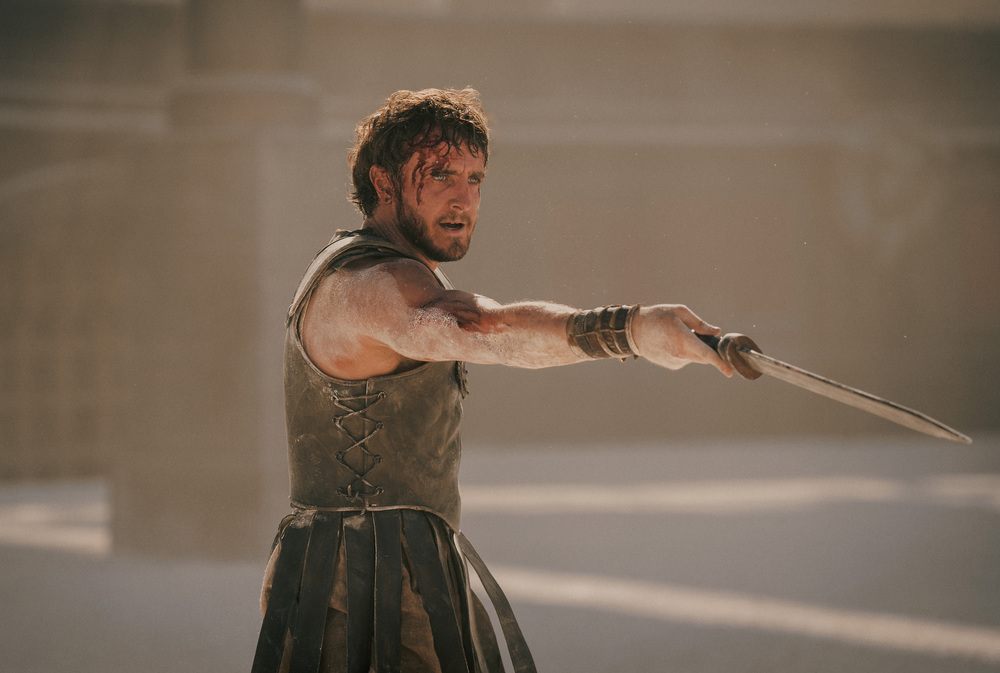Gladiator II

Paul Mescal stars in GLADIATOR II. (Photo: Paramount)
Once you get past the dazzling visual splendor, Gladiator II bogs down in rehashed familiarity, making it unworthy of a return to the arena.
Venerable director Ridley Scott’s belated follow-up to his Oscar-winning 2000 epic emphasizes spectacle over substance — a marvel of visual and technical craftsmanship from cinematography to costumes to special effects.
From a narrative perspective, however, it basically just resets the ancient Roman mythology for a new set of heroes and villains in similar settings, dealing with many of the same themes and sociopolitical struggles as its predecessor.
Plus, a brooding performance by actor Paul Mescal (All of Us Strangers) can’t substitute for Russell Crowe, whose charisma and underlying conviction carried the original.
Like the first film, this bloody tale of ego and conquest, betrayal and vengeance, is a power struggle set amid an oppressive, misogynistic culture of cloudy motives and shifting loyalties, fueled by toxic masculinity and overrun with brutality and corruption.
Caught in the middle is Lucius (Mescal), whose African homeland is attacked from the seas by the army of Marcus Acacius (Pedro Pascal). Lucius is imprisoned and forced to return to Rome, where he’s bought by Macrinius (Denzel Washington), an ex-slave now profiting off of a lucrative stable of gladiators sent to the Colosseum.
“The arena turns slaves into gladiators and gladiators into free men,” explains his henchman (Lior Raz). While that might foreshadow Lucius’ destiny, it doesn’t account for Lucilla (Connie Nielsen), mother of Crowe’s combatant who returns here with a new stake in the proceedings.
The steely-eyed Lucius exudes quiet dignity and determination as he prefers to communicate with his fists and swords, burdened by past secrets he’s concealing from others but also from himself.
Washington steals his scenes with mischievous glee as a devious and manipulative outsider with violent intentions, and a hidden agenda.
The film urges us not to get caught up in the historical particulars but rather embrace the over-the-top silliness. After all, the stirring combat set pieces, staged with visceral intensity, are what people come to see.
The screenplay by David Scarpa (Napoleon) struggles to develop meaningful character depth and emotional complexity with a story that lacks subtlety and surprise while funneling toward an inevitable climactic showdown.
Both sweeping and immersive, Gladiator II revels in its barbaric decadence, both to its benefit and its detriment. It’s just that the original film did it first, and better.
Rated R, 148 minutes.